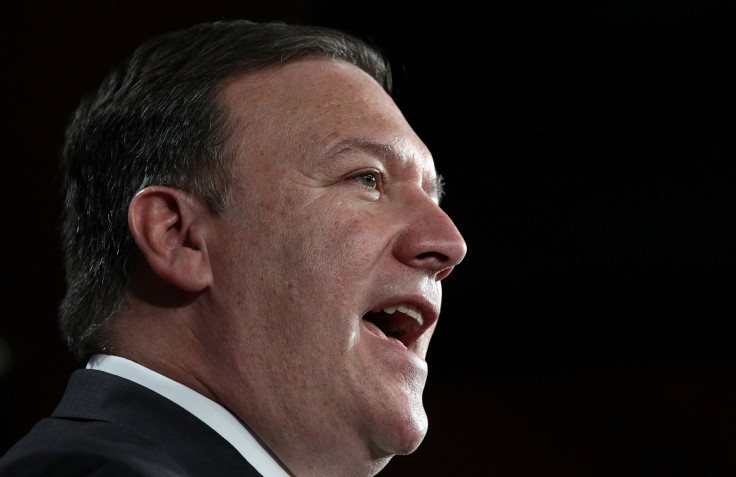Trump's pick for CIA director views encryption 'a red flag' and wanted Snowden executed
US Congressman Mike Pompeo has accepted the offer to head the CIA under Trump's presidency.

Donald Trump announced his pick to head the CIA on 18 November. Trump's pick, US congressman Mike Pompeo, has since accepted the offer to head the CIA under Trump's presidency. However, privacy advocates and security experts have raised concerns about Pompeo, who is a strong advocate for mass surveillance and restricting encryption.
Pompeo "will be a brilliant and unrelenting leader for our intelligence community to ensure the safety of Americans and our allies," president-elect Trump said in a statement.
Pompeo has previously suggested that the mere use of encryption could be an indicator that the user may be a violent extremist. He has also taken a particularly stern stance on dealing with NSA whistleblower Edward Snowden. Following a massive pardon campaign launched by Snowden's allies, Pompeo issued a press release, in support of imprisoning Snowden, rather than pardoning him.
In an interview with C-SPAN earlier in the year, Pompeo called for Snowden's execution. He said, "He should be brought back from Russia and given due process, and I think that the proper outcome would be that he would be given a death sentence for having put friends of mine, friends of yours, in the military today, at enormous risk because of the information he stole and then released to foreign powers," ArsTechnica reported.
I am honored and humbled to accept the President-elect’s nomination to lead the @CIA . Read my full statement: https://t.co/AFTr80dTds
— Mike Pompeo (@RepMikePompeo) November 19, 2016
Pompeo's stance on encryption
In January, in an op-ed piece published by the Wall Street Journal, Pompeo called for widening mass surveillance in the wake of the San Bernardino shooting. "Forcing terrorists into encrypted channels, however, impedes their operational effectiveness by constraining the amount of data they can send and complicating transmission protocols, a phenomenon known in military parlance as virtual attrition," Pompeo wrote. "Moreover, the use of strong encryption in personal communications may itself be a red flag."
In yet another op-ed piece published by the National Review, Pompeo criticised the Obama administration for not showing more willingness in collecting "intelligence on jihadists". He also claimed that the USA Freedom Act, which imposed new restrictions on the NSA's mass surveillance activities, "gutted" the programme and made America less secure.
Security experts and privacy advocates react
"None of us believe that a couple of years in the Army followed by sitting on a committee in Congress qualifies anyone for any position in the CIA, much less as the Director," a former military officer who also worked in the intelligence community told Motherboard on the condition of anonymity. "We believe that the ongoing nepotism used to select unqualified and in some cases, dangerous people for leadership in these key positions may well lead to a catastrophic failure for the United States."
While Jeff Sessions has gotten all the headlines today, let's not ignore the record of Mike Pompeo, Trump's proposed CIA director! pic.twitter.com/YpEYH9lPYU
— ACLU National (@ACLU) November 18, 2016
ACLU executive director Anthony D Romero wrote, "Congressman Pompeo's positions on bulk surveillance and Guantanamo Bay also raise serious civil liberties concerns about privacy and due process."
© Copyright IBTimes 2024. All rights reserved.






